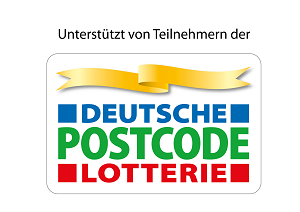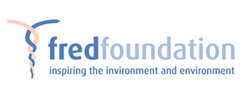Belarus - Citizens involvement
Developing multi-stakeholder cooperation in the areas of water, waste and energy efficiency in Belarus
19.04.2010 | WECF Project
| Countries: | Belarus |
| Donors: | Ministry of Foreign Affairs (MinBuza), European Cooperation, MATRA programme, The Netherlands |
| Partners: | Ecoproject |
| Issues: | Energy & Climate, Water & Sanitation, Gender & Rights |
| Duration: | 12/2006 - 03/2010 |

The project’s overall aim is to raise awareness of sustainable development, mainly in the areas of water, waste and energy efficiency, amongst NGOs, local authorities and citizens as well as businesses in their communities in Belarus.
Background and Problems
Capacity Building
The current political situation in Belarus calls for the reinforcement of civil society, for a productive co-operation between civil society and the local government, which will result in sustainable local development. In order to achieve this there is a strong need to strengthen the capacity of NGOs.
This project aims at doing so by creating positive and visible demonstration projects that improve the lives of the local people. These examples will also serve as motivation for the population to take actively part in local development activities and to support the work of NGOs.
Despite the small number of active NGOs and an unfavourable environment for their operation, NGOs in Belarus have gained considerable experience and developed capacities which will be useful to enhance further development of local communities.
The lack of tools and models of a participatory approach for the co-operation between NGOs, authorities and businesses is a serious challenge. In spite of the general uneasiness of the central government towards the existence of NGOs some governmental institutions (such as the current Minister of Environment) co-operate with civil society.
But this practice is unprecedented. The creation of the Public Council, established at the Ministry for Environment, of which some of the major environmental NGOs are part of, is a positive step towards a better communication and co-operation. However, this process has to be developed and extended which is part of this project’s aims.
Quality of drinking water
The quality of the drinking water is a serious problem for rural areas where about 3.3 million people use wells as a source of water. So far only 30% of all existing wells have been subject to laboratory water tests. Around 30 to 50% of these wells do not comply with existing sanitary hygienic norms. The reason for their pollution are their poor condition, i.e. the lack of necessary hygienic and sanitary standards and their vicinity to farm land, waste water or animal dung.
Potential for energy saving
Belarus is a net importer of energy and oil. However, the current prices for energy, e.g. gas and oil, do not encourage people to save energy. But the price of oil and gas has been increasing steadily, and people understand that energy prices will continue to increase in the future. There is a huge potential for energy saving in Belarusian buildings. Technically, energy saving of 50% to 70% can be achieved, but this requires substantial investments, and the payback time is about 5 to 10 years. In most school buildings, low cost measures can be implemented to reduce the energy consumption by 20 to 25% in a profitable way.
Wild waste dumps and home incineration of waste pose health risks
Wild waste dumps in Belarus offer grounds for disease-carrying animals, such as cockroaches and rats. The burning of home waste produces emissions that can cause air pollution, in particular the burning of plastic waste can have severe health effects. Furthermore the dumping of waste in water contributes to various forms of water pollution. The problem of waste and the proper management with its disposal is also an issue to be addressed by this project.

Overall Objectives
- Increase access to environmental information, by providing information and raising awareness amongst the target groups (NGOs, stakeholders from local authorities, citizens and businesses) and the wider target groups about the opportunities of sustainable development in their communities, about the operation of participatory local demonstration projects, about participatory local sustainability planning and strategies for sustainable local development.
- Strengthen the capacities of the main beneficiaries (NGOs, local authorities, business and citizens) to communicate and co-operate; to share information, knowledge and experiences.
- Improve the professional skills and increase the institutional capacities of the beneficiaries (in particular the NGOs) to identify priority needs in the community, to design, manage and monitor visible local projects and processes for sustainable development in their communities.
- Develop strategic planning tools: to help develop and adapt long-term sustainability action planning at community level that is successfully implemented and periodically reviewed.
- Document the project clearly so that it can serve as a replicable model for multi-stakeholder informed demand strategic planning.Raise awareness about different roles of men and women in Belarusian society and contribute to improving gender mainstreaming in local policy making in Belarus.
Activities/Implementation
The following activities are planned:
- Planning meeting in Munich (March 2007)
- Start-up meeting in Minsk (May 2007)
- Workshop on base-line study; at the end of the training NGOs will be encouraged to carry out a short base-line study in their communities (June 2007)
- Training Conference 1 “Water Protection and Sanitation” (October 2007)
- Training Conference 2 “Waste-water, Storm-water, Solid Waste” (December 2007)
- Training Conference 3 “Energy Saving and Renewable Energy Sources” (February 2008)
- Study visit to the Ukraine of representatives of the NGO partners to visit successful demonstration projects in the areas of waste, water and sanitation (February to April 2008)
- Information and Publications (8 thematic booklets; guide “How to initiate participatory processes and strategies for sustainable local development”; regular information on the partners’ websites (www.ecoproject.org and www.wecf.eu)
- Demonstration projects (December 2007 - June 2009)
- Lessons Learnt Conference (July to October 2009)
Contact
- Dr. Anke Stock: anke.stock(at)wecf.eu
- Tatiana Dereviago: tatiana.dereviago(at)wecf.eu
- Yulia Yablonskaya: yulia(at)ecoproject.org
- Margriet Samwel: margriet.samwel(at)wecf.eu
Related News
Meet the Winners of the Gender Just Climate Solutions Award at COP24
On the 70th anniversary of the Universal Declaration of Human Rights, we awarded Gender Just Climate Solutions Winners at the climate negotiations in Katowice, Poland
11.12.2018
Invitation: Gender Just Climate Solutions Award 2018
10 December, COP24 Katowice
04.12.2018
Getting to the Future We Want
4-7 November, Brussels: European Environmental Bureau’s (EEB) Annual Conference
12.11.2018
GoodFood4All
WECF and partners all over Europe start GoodFood4All Campaign
06.11.2018
#Ruralwomen: join our Women2030 campaign!
15.10.2018
Lack of trustworth information is a barrier to chemicals & product related decision-making
8-9 October, Geneva: short report of the meeting of the Aarhus Convention’s task force on public participation in decision-making
12.10.2018
Congratulations Sascha!
Named thirty-third most influential sustainability fighter in the Netherlands
08.10.2018
The Netherlands in the next gear - Adopt an SDG Live!
WECF and Building Change organised the event “The Netherlands in the next gear – Adopt an SDG live” on 27 September in the Koorenhuis in The Hague
02.10.2018
Human Biomonitoring for Europe
Vienna, 26 September: stakeholder forum
28.09.2018











































